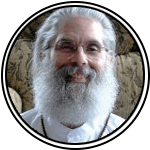According to The American Meditation Institute founder Leonard Perlmutter, AMI MEDITATION techniques, that can relieve and prevent common physician burnout symptoms, will be taught at the 10th annual 32-credit hour mind/body medicine CME conference for physicians and other health care professionals. Taking place October 23-27, 2018 at the Cranwell Resort and Spa in Lenox, Massachusetts, “The Heart and Science of Yoga” curriculum, which will provide comprehensive training in Yoga Science as holistic mind/body medicine for physicians and other healthcare professionals, is accredited through the Albany Medical College and the American Medical Association.
A 2017 article in Becker’s Hospital Review chronicled six reasons the administrative burden of Electronic Health Record (EHR) requirements have contributed to increased burnout symptoms among healthcare providers. In response to the comprehensive list that includes everything from click fatigue to tedious documentation requirements, Leonard Perlmutter acknowledges that the recent increase in EHR related administrative tasks has had a direct correlation to both the decrease in meaningful time interacting with patients, and the growing physician burnout epidemic. According to Perlmutter, “Although the time-consuming requirements of EHRs are not going away, physicians can learn practical strategies—such as AMI MEDITATION and its allied disciplines—to transform their stress into creativity and strength.” Then he adds, “The ‘Heart and Science of Yoga’ curriculum represents the world’s oldest and most effective holistic mind/body medicine to relieve and prevent burnout, heal disease, manage addictive habits, alleviate stress and inflammation, and balance life-work responsibilities.”
In support of The American Meditation Institute’s continuing medical education accreditation for physicians (through the Albany Medical College and the American Medical Association), AMI conducted a 2009 retrospective case study of participants who completed Leonard Perlmutter’s “Heart and Science of Yoga” course. The findings included these positive, reproducible, long-term health-promoting changes: significant reductions in stress and fear, decreased anxiety and depression, lowered blood pressure, lowered heart rate, improved restorative sleep, improved energy levels, increased creative capacity, diminishment of migraine headaches, elimination of irritable bowel syndrome, enhanced happiness and optimism, reduced cholesterol levels, diminished or extinguished acute and chronic pain, weight loss and increased breathing capacity.
Upon completion of this 32-credit CME conference, participants will be able to: 1. Demonstrate knowledge of how Yoga Science as mind/body medicine can help heal disease, manage addictive habits, and alleviate stress, inflammation and physician burnout; 2.Develop equanimity, discrimination, will power, creativity and energy through a daily practice of AMI MEDITATION and diaphragmatic breathing; 3. Incorporate long-term strategies for healthy lifestyle choices using Yoga Psychology; 4. Demonstrate knowledge of the principles of both Ayurveda and Epigenomics; 5. Identify yogic practices to help transform trauma and increase resilience; 6. Utilize Food as Medicine (Diet, Nutrition, Functional Medicine) to maximize personal well-being; 7. Recognize the physiological benefits of Easy-Gentle Yoga (exercises for lymph system detox, joints, glands, muscles and internal organs); 8. Recognize neuromuscular pain patterns; 9. Help themselves and patients reduce conditioned habits of negative thinking and other symptoms of burnout through the healing powers of AMI MEDITATION and mantra science; 10. Use Chakra Psychology (subtle emotional/mental causes of stress) to assist in the diagnosis and treatment of dis-ease; 11. Recognize how AMI MEDITATION and meditation-in-action change the neural pathways in the brain to help manage pain without drugs; 12. Identify altered pathways in the brain due to addiction and the ability of Yoga Science and AMI MEDITATION to assist brain chemistry and circuitry to heal and rebuild itself.
The dedication, enthusiasm, and teaching methodology of the entire AMI faculty create a dynamic and interactive course for their students. Each faculty member is committed to the advancement and training of Yoga Science as holistic mind/body medicine. Distinguished presenters will include Leonard Perlmutter, AMI founder; Mark Pettus MD, Director of Medical Education and Population Health at Berkshire Health Systems; Anthony Santilli MD, board-certified in Pulmonary and Critical Care Medicine; Sat Bir Singh Khalsa, PhD, Director of Research for the Kundalini Research Institute, and Assistant Professor of Medicine at Harvard Medical School; Susan Lord MD, a private practice holistic physician focusing on prevention and treatment, and former course director for The Center for Mind-Body Medicine’s “Food As Medicine” program in Washington, DC; Jesse Ritvo MD, Assistant Medical Director, Inpatient Psychiatry, University of Vermont Health Center; Renee Rodriguez-Goodemote, MD, Medical Director of the Saratoga Hospital Community Health Center; Joshua Zamer, MD, Medical Director for Addiction Medicine at Saratoga Hospital Community Health Center and Chairman of the Department of Family Practice; Beth Netter MD MT, holistic physician and acupuncturist, Albany, NY; Prashant Kaushik MD, board-certified Rheumatologist; Anita Burock-Stotts, MD, board certified in Internal Medicine; Gustavo Grodnitzky PhD and Chair of the AMI Department of Psychological Education; Jenness Cortez Perlmutter, faculty member and co-founder of The American Meditation Institute, and Lee Albert, NMT, acclaimed neuromuscular therapist and gentle yoga instructor.
AMI founder Leonard Perlmutter underscores the point that, “If a physician or healthcare provider is experiencing stress and burnout symptoms due to burdensome EHR requirements, it is an instructive indication that the individual needs to make a shift in perspective to experience a healthy, creative and rewarding personal and professional life. This year’s conference has been specifically designed to teach physicians and healthcare providers how to employ Yoga Science and AMI MEDITATION skills that can reliably diminish or eliminate burnout and chronic complex disease symptoms.”
Since 1996, Mr. Perlmutter has lectured extensively on the health benefits of Yoga Science as holistic mind/body medicine, including talks at the M.D. Anderson Cancer Center, Albany Medical Center, Stratton VA Medical Center, Berkshire Medical Center, UConn School of Medicine, University of Colorado Medical School, University of Wisconsin School of Nursing, Washington University Medical School, the United States Military Academy at West Point, and the Commonwealth Club of California. He also served on a distinguished “New York Times” panel of Yoga experts with Dr. Dean Ornish.
According to conference director Mary Helen Holloway, one hundred percent of last year’s attendees ranked this conference as “Superior” to other CME courses. Karenga Lemmons MD, 2017 conference attendee and Internal Medicine physician, claimed, “This is the only CME course I’ve ever attended that reminds me that in order to be a better doctor I need to take care of myself.”


